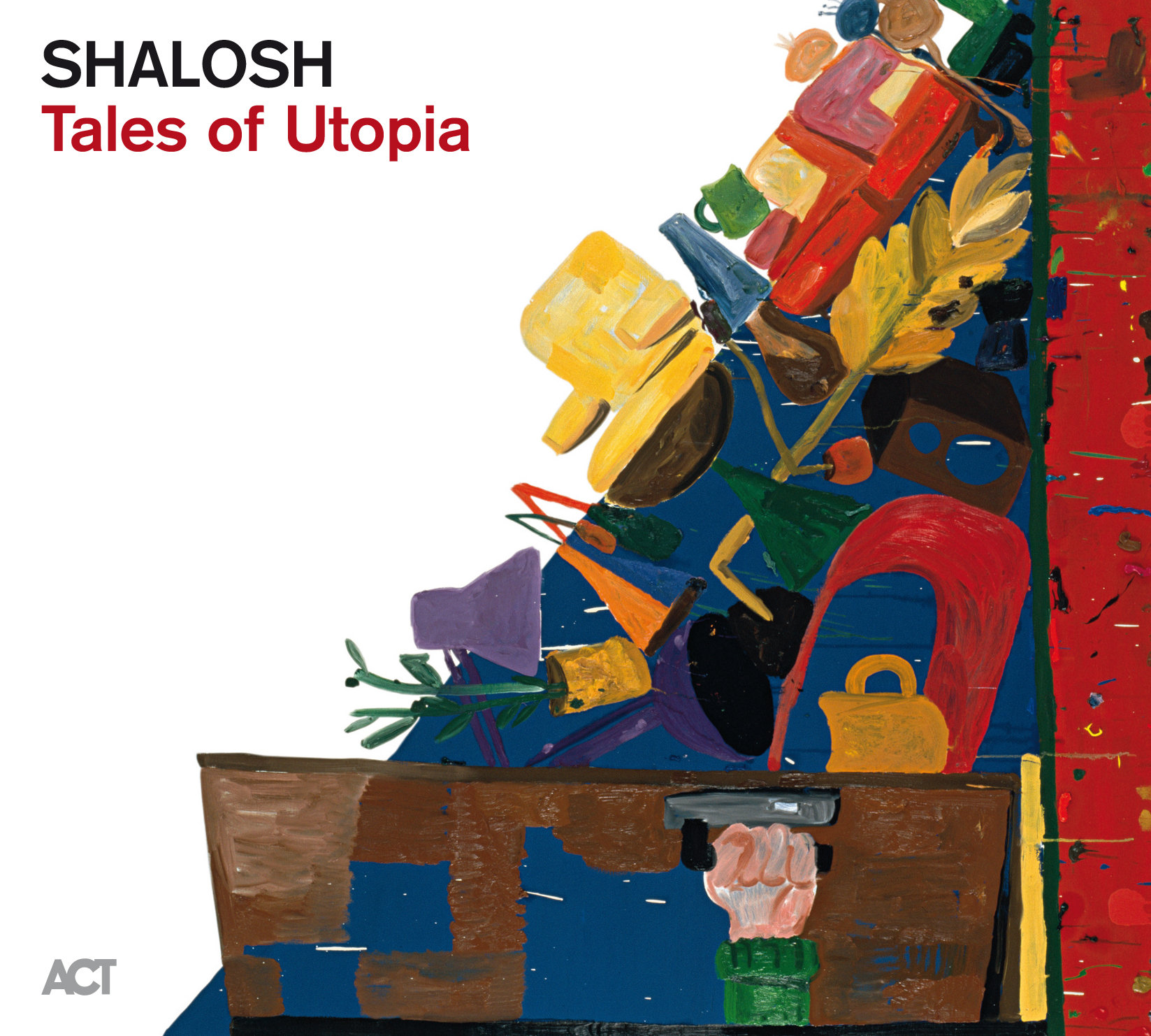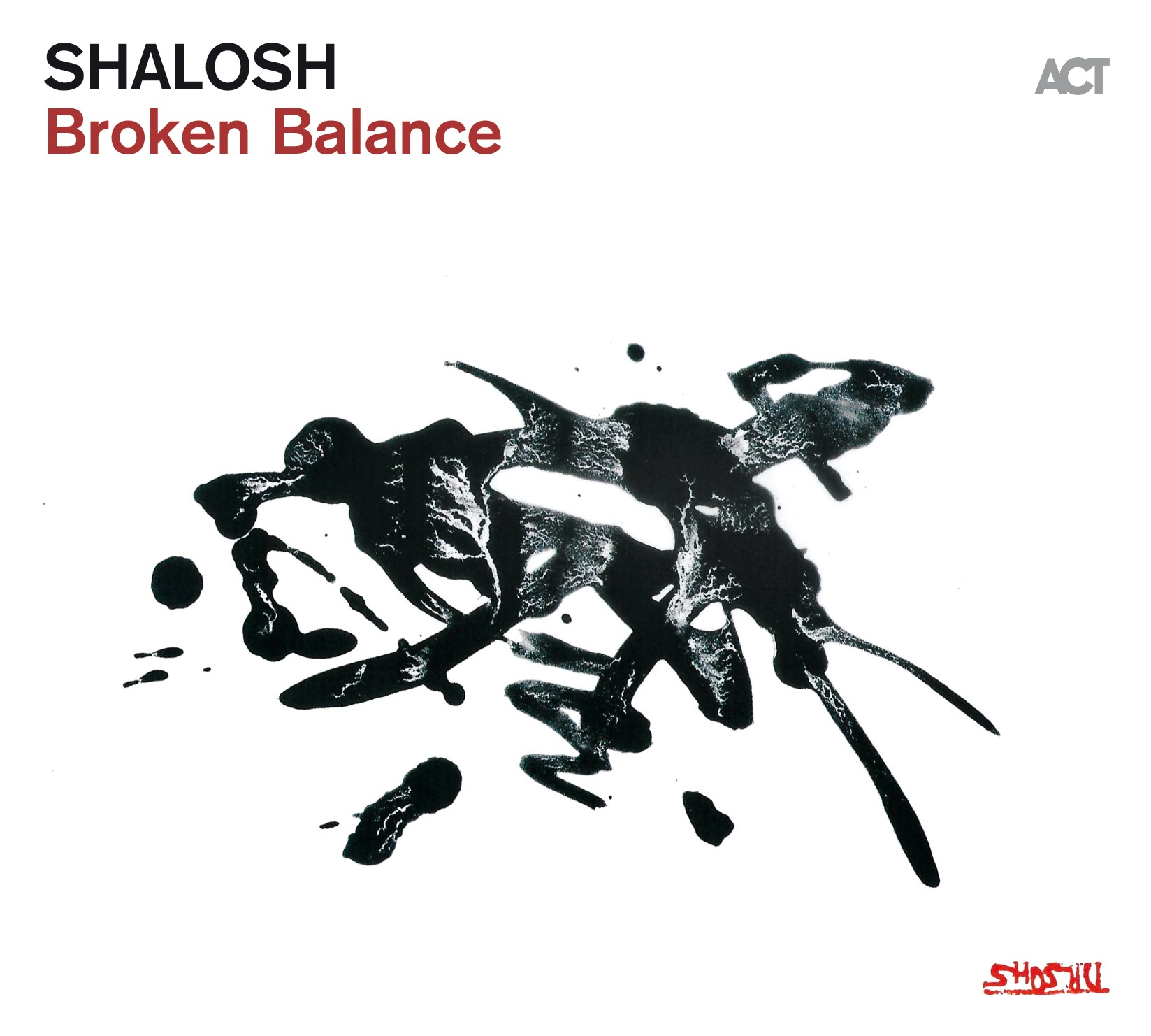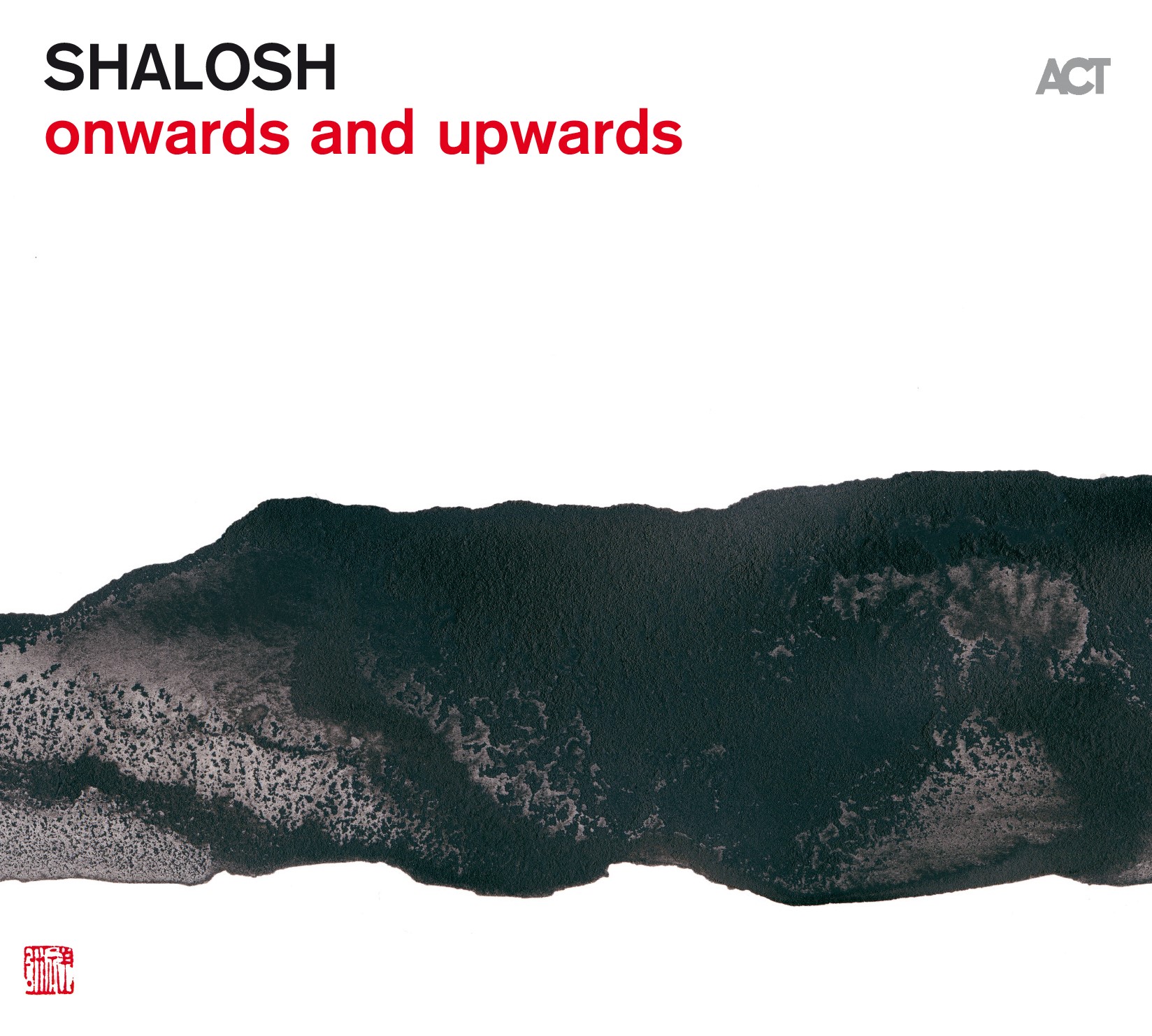Back
VÖ: 29.09.2023
Genre: Piano Jazz
Gadi Stern / piano and keys
David Michaeli / double bass
Matan Assayag / drums
Music composed, arranged and produced by Shalosh
the art in music: cover art "Blokeret dør, 2000" by Tal R
Once again the groove is catchy, the way of shaping melodies utterly distinctive; these aspects define the sound of Shalosh. And once again, the trio is incredibly tight – after all, the band’s name does mean “three” in Hebrew. "An Israeli power trio. Heavy jazz!", declared German Rolling Stone magazine; The critic from the Times found them "full of promise.". At Deutschlandfunk, there was talk of "jazz in the fast lane", once again reaching "young jazz fans all over Europe". The three musicians, who live close to each other in Tel Aviv, each contribute their musical predilections - jazz, classical music, grunge, rock, techno or folk - into the common organism, in which all these elements are rendered into an exciting mixture. And through their inspirational concerts around the globe, there has been constant further refinement. They take audiences with them by challenging them: this is music which aims to appeal to the heart, engage the intellect and get straight through to the dancing feet.
Things could have just gone on as they were, but much has changed since 2020's “Broken Balance”. "It's a different world now," says Gadi Stern, "and you can hear that on the new album. Back then everything was fine, there was more or less nothing missing. But now there's a sense of the end of the world all around us." So, on "Tales of Utopia”, Shalosh have taken their music, their way of telling stories through sound, and placed them in a bigger context. Drawing elements from the Old Testament and the Odyssey, they combine Christian and Greek mythology in a way which is individual...rhapsodic. The connecting of world cultures gives a common thread to the album:
A young hero is travelling into the unknown. But what is unknown to him is not just the external world, but also the inner self. Every journey also leads to increased self-awareness, and that makes him stronger. "Tales of Utopia" is about how utopian thinking is based on the preoccupation with one's own self, on concentration and meditation. Keeping that focus well honed functions as the antidote to information overkill.
Shalosh envisage their music as a place of refuge. In a crisis-ridden world, their aim is to give strength, comfort and inspiration. and provide support against pandemics, tanks and slogans. Using an episodic structure derived from epic theatre, they present an image of arriving in the big city and being deluged with new impressions. The hero has to find his way through a market alive with strange smells, colours and movement. Then, dramatically, he leaves the metropolis at sunset. We witness a boat being rolled by the waves of the ocean, and also three sisters on an island who take care of the hero, their voices intertwining. The king's dreams come unstuck in all the turbulence, he also receives some poor advice. But all then comes to a happy ending in a Moroccan-inspired wedding song, as a band of friends all gather in one room for a party with hand-clapping and singing,
We are propelled through this timeless story by the wonderful Shalosh sound. It is as if the band has found just the right places to insert all of these stories into a vast painting. The chronology of events has been brilliantly adapted to make the musical flow feel natural. The recording process has also been re-imagined. Without headphones or amps, the three recorded their song-like stories in physical proximity to each other, as if playing live. It sounded rougher and more direct, because the room had an acoustic which was so alive. What was important was what the lyrics would trigger musically. "Inside the room we could escape the troubles of the world," recalls drummer Matan Assayag. "For three or four hours we focused on the music and formulated our utopia. That way we could block out the external pressures. That's the meaning behind the title. Our previous album reflected the world outside, this one is about inner harmony."
"Tales of Utopia" documents a search for poise and peacefulness. Gadi and Matan have recently become fathers. This positive energy has flowed in. "Art makes the world better" is the way they describe their intentions. "We want to bring beauty into the world and create a feeling that people can be happy in themselves. They have to re-learn that, and also place themselves in relation to the constant flood of information so that more and more doesn't actually mean less and less. Our children were the best teachers in this because they are fascinated by small things. That's how you can overcome the destructive."
There is more going on here than mere everyday pragmatism. This is exciting music, a panoply of colours and timbres. It invites the listener to be enchanted and to focus on its sheer beauty. It also has deep humanity: rather than striving for perfection, it bristles with energy and vitality.
David Michaeli / double bass
Matan Assayag / drums
Music composed, arranged and produced by Shalosh
the art in music: cover art "Blokeret dør, 2000" by Tal R
Once again the groove is catchy, the way of shaping melodies utterly distinctive; these aspects define the sound of Shalosh. And once again, the trio is incredibly tight – after all, the band’s name does mean “three” in Hebrew. "An Israeli power trio. Heavy jazz!", declared German Rolling Stone magazine; The critic from the Times found them "full of promise.". At Deutschlandfunk, there was talk of "jazz in the fast lane", once again reaching "young jazz fans all over Europe". The three musicians, who live close to each other in Tel Aviv, each contribute their musical predilections - jazz, classical music, grunge, rock, techno or folk - into the common organism, in which all these elements are rendered into an exciting mixture. And through their inspirational concerts around the globe, there has been constant further refinement. They take audiences with them by challenging them: this is music which aims to appeal to the heart, engage the intellect and get straight through to the dancing feet.
Things could have just gone on as they were, but much has changed since 2020's “Broken Balance”. "It's a different world now," says Gadi Stern, "and you can hear that on the new album. Back then everything was fine, there was more or less nothing missing. But now there's a sense of the end of the world all around us." So, on "Tales of Utopia”, Shalosh have taken their music, their way of telling stories through sound, and placed them in a bigger context. Drawing elements from the Old Testament and the Odyssey, they combine Christian and Greek mythology in a way which is individual...rhapsodic. The connecting of world cultures gives a common thread to the album:
A young hero is travelling into the unknown. But what is unknown to him is not just the external world, but also the inner self. Every journey also leads to increased self-awareness, and that makes him stronger. "Tales of Utopia" is about how utopian thinking is based on the preoccupation with one's own self, on concentration and meditation. Keeping that focus well honed functions as the antidote to information overkill.
Shalosh envisage their music as a place of refuge. In a crisis-ridden world, their aim is to give strength, comfort and inspiration. and provide support against pandemics, tanks and slogans. Using an episodic structure derived from epic theatre, they present an image of arriving in the big city and being deluged with new impressions. The hero has to find his way through a market alive with strange smells, colours and movement. Then, dramatically, he leaves the metropolis at sunset. We witness a boat being rolled by the waves of the ocean, and also three sisters on an island who take care of the hero, their voices intertwining. The king's dreams come unstuck in all the turbulence, he also receives some poor advice. But all then comes to a happy ending in a Moroccan-inspired wedding song, as a band of friends all gather in one room for a party with hand-clapping and singing,
We are propelled through this timeless story by the wonderful Shalosh sound. It is as if the band has found just the right places to insert all of these stories into a vast painting. The chronology of events has been brilliantly adapted to make the musical flow feel natural. The recording process has also been re-imagined. Without headphones or amps, the three recorded their song-like stories in physical proximity to each other, as if playing live. It sounded rougher and more direct, because the room had an acoustic which was so alive. What was important was what the lyrics would trigger musically. "Inside the room we could escape the troubles of the world," recalls drummer Matan Assayag. "For three or four hours we focused on the music and formulated our utopia. That way we could block out the external pressures. That's the meaning behind the title. Our previous album reflected the world outside, this one is about inner harmony."
"Tales of Utopia" documents a search for poise and peacefulness. Gadi and Matan have recently become fathers. This positive energy has flowed in. "Art makes the world better" is the way they describe their intentions. "We want to bring beauty into the world and create a feeling that people can be happy in themselves. They have to re-learn that, and also place themselves in relation to the constant flood of information so that more and more doesn't actually mean less and less. Our children were the best teachers in this because they are fascinated by small things. That's how you can overcome the destructive."
There is more going on here than mere everyday pragmatism. This is exciting music, a panoply of colours and timbres. It invites the listener to be enchanted and to focus on its sheer beauty. It also has deep humanity: rather than striving for perfection, it bristles with energy and vitality.
“Ear-catching melodies and startling improv. ****” (The Times)



